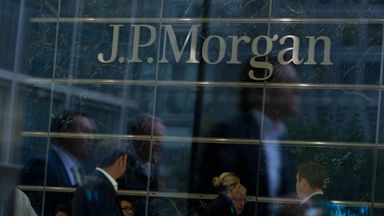Emmanuel Macron’s borrowing binge has been criticised by the European Commission, which said France is at risk of fines if the country’s finances are not brought back under control.
In an announcement on Wednesday, policymakers in Brussels said France is among seven nations being monitored for running too large a deficit.
This means France has been put into a so-called excessive deficit procedure, which can result in a fine if borrowing is not scaled back.
The reprimand comes at the worst possible moment for the French president, who has sparked a period of political and financial turbulence after calling a snap election earlier this month.
The prospect of Mr Macron losing to Marine Le Pen’s National Rally (RN) party has wobbled debt markets, as investors fear the country will face higher interest rates if borrowing rises.
The European Commission warned on Wednesday that the president’s economic plans imply spiralling debts, which demonstrate “high risks over the medium term”.
According to its baseline 10-year projection, the EU expects France’s debt ratio to rise to about 139pc of GDP by 2034, up from just over 110pc currently.
It said: “The debt trajectory is sensitive to macroeconomic shocks.”
France is among seven countries – including Giorgia Meloni’s Italy and Pedro Sanchez’s Spain – that have been found in breach of budget deficit rules, which require borrowing to be below 3pc of GDP per year.
All seven now face the excessive deficit procedure, under which the European Commission will propose ways for the countries to cut back borrowing.
The rules are back in force after they were suspended during the pandemic and the energy crisis.
The French government plans to run a deficit of more than 5pc of GDP this year, official figures show, and borrowing is not expected to fall back below 3pc in the coming years.
Forecasts from the International Monetary Fund indicate that France will still be running a deficit of almost 4pc of GDP in 2029.
France’s national debt expected to rise
The European Commission’s assessment shows that the country’s national debt is on track to rise to 112.4pc this year, far above the European Commission’s 60pc target and moving in the wrong direction.
It comes at a time of high interest rates and mediocre economic growth.
The Commission said: “Risk-increasing factors relate to the recent increase in interest rates, the share of short-term government debt, the expected increase in gross financing needs over the medium term, and the contingent liability risks stemming from the private sector, including via the possible materialisation of state guarantees granted to firms and self-employed [workers] during the Covid-19 crisis.
“On the other hand, risk-mitigating factors include the lengthening of debt maturity in recent years and relatively stable financing sources.”
Last month credit ratings agency Standard and Poor’s downgraded France, in a sign that analysts are increasingly concerned by the government’s heavy borrowing.
After President Macron called the snap election this month, Bruno Le Maire, the economy minister, warned that victory for Ms Le Pen’s party would risk a “Liz Truss-style” debt crisis.
Disclaimer: The copyright of this article belongs to the original author. Reposting this article is solely for the purpose of information dissemination and does not constitute any investment advice. If there is any infringement, please contact us immediately. We will make corrections or deletions as necessary. Thank you.



